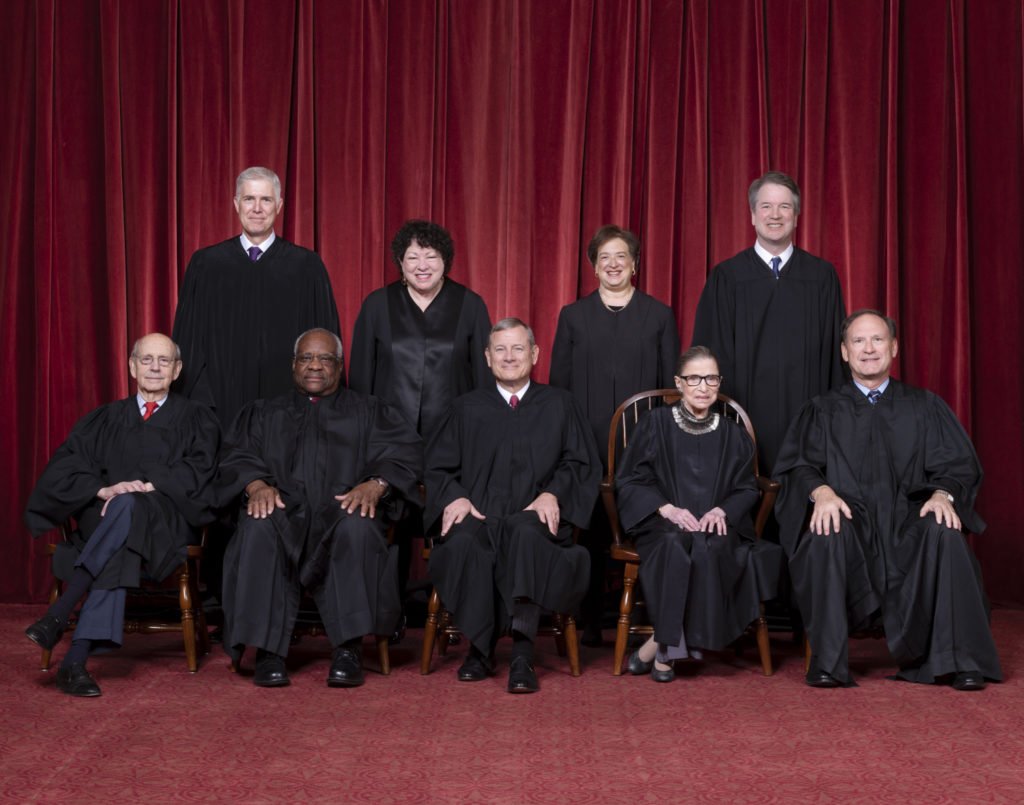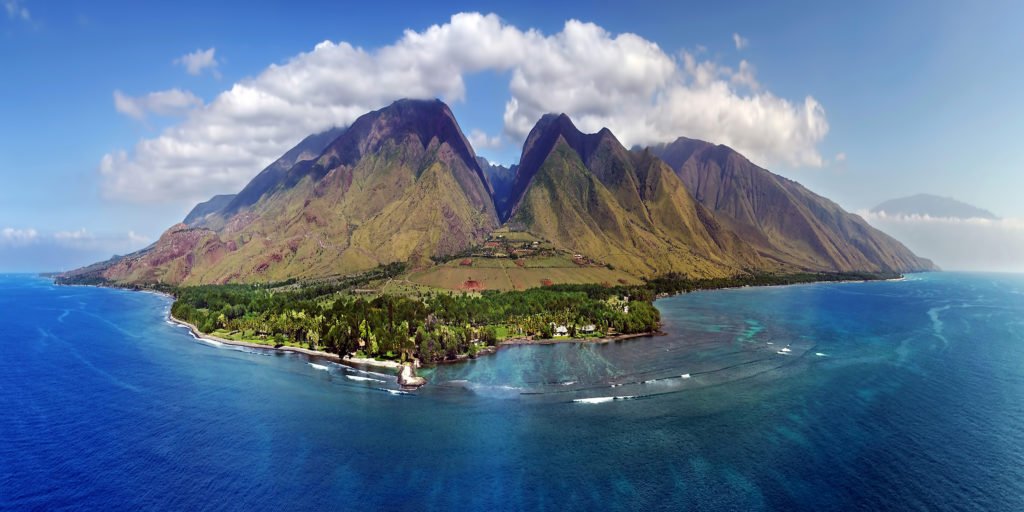SCOTUS to Maui: You Need a Permit—The New Maui Wowie
When do prepositions protect our groundwater? When the Supreme Court of the United States (SCOTUS) says so. In County of Maui, Hawaii v. Hawaii Wildlife Fund et al., Justice Stephen Breyer used the words from and to in declaring that pollution discharged from a point source or its functional equivalent that flows to jurisdictional of the United States must be regulated by permit, even if that discharge is into groundwater first.
The ruling occurred on Wednesday, April 23, 2020, the day after Earth Day in a 6-3 decision with Justices Roberts, Ginsburg, Sotomayor, Kagan, and Kavanaugh joining. Justices Thomas, Alito, and Gorsuch dissented.

The Roberts Court. Seated, from left to right: Justices Stephen G. Breyer and Clarence Thomas, Chief Justice John G. Roberts, Jr., and Justices Ruth Bader Ginsburg and Samuel A. Alito. Standing, from left to right: Justices Neil M. Gorsuch, Sonia Sotomayor, Elena Kagan, and Brett M. Kavanaugh. Photo credit Fred Schilling, Supreme Court Curator’s Office.
Trump Administration Loopholes
Justice Breyer also used the word loophole 10 times, occasionally including the adjectives massive, serious, and obvious with it, to describe the weakening of the Clean Water Act that would occur if Trump’s solicitor general’s arguments had won the day.
The Maui County wastewater facility collects sewage from the surrounding area, partially treats it, and then discharges it—four million gallons a day—into wells that empty into the groundwater. From there the polluted discharge travels a half-mile to the Pacific Ocean—coastal waters under the jurisdiction of the United States.
The County of Maui and the solicitor general of the United States argued that the facility did not need a permit to discharge pollution into groundwater.
SCOTUS Ruled it Does
Trump’s solicitor general argued that “all releases of pollutants to groundwater” are excluded from the scope of the permitting program, “even where pollutants are conveyed to jurisdictional surface waters via groundwater.”

Noel Francisco is the Solicitor General of the United States. The Solicitor General argues cases before the Supreme Court of the United States on behalf of the government. Photo credit U.S. Department of Justice.
Justice Breyer countered in his opinion, “That reading, which would open a loophole … is neither persuasive nor reasonable.”
This ruling is huge—A Maui Wowie. It’s a Roe v. Wade moment for the environment. It means polluters can’t use groundwater or other nonpoint methods to get rid of their pollution without a permit.
Implications for Dominion’s Coal Ash Ponds in Virginia
And the ruling has widespread implications. For example, in Sierra Club v. Virginia Electric and Power (Dominion Energy), the U.S. Fourth Circuit Court of Appeals reached a different conclusion in a case about Dominion’s unlined coal ash pond in Virginia that leached arsenic from the unlined pond through the groundwater to the Elizabeth River and Deep Creek.

Arial view of Chesapeake, VA where Dominion Energy has an unlined coal ash pond. Arsenic leaches from the pond through groundwater and enters the Elizabeth River. Photo credit Google Maps.
The court found Dominion not in violation of the Clean Water Act, partly because the arsenic went through groundwater—and groundwater was not covered under the Clean Water Act.
SCOTUS now says it is.
The first sentence of the Clean Water Act:
The objective of this Act is to restore and maintain the chemical, physical, and biological integrity of the Nation’s waters.
The Maui ruling provides new guidance for the courts and is a welcome and positive step forward in the protection of surface waters and groundwater as well.
The post SCOTUS to Maui: You Need a Permit—The New Maui Wowie appeared first on Getting More on the Ground.



